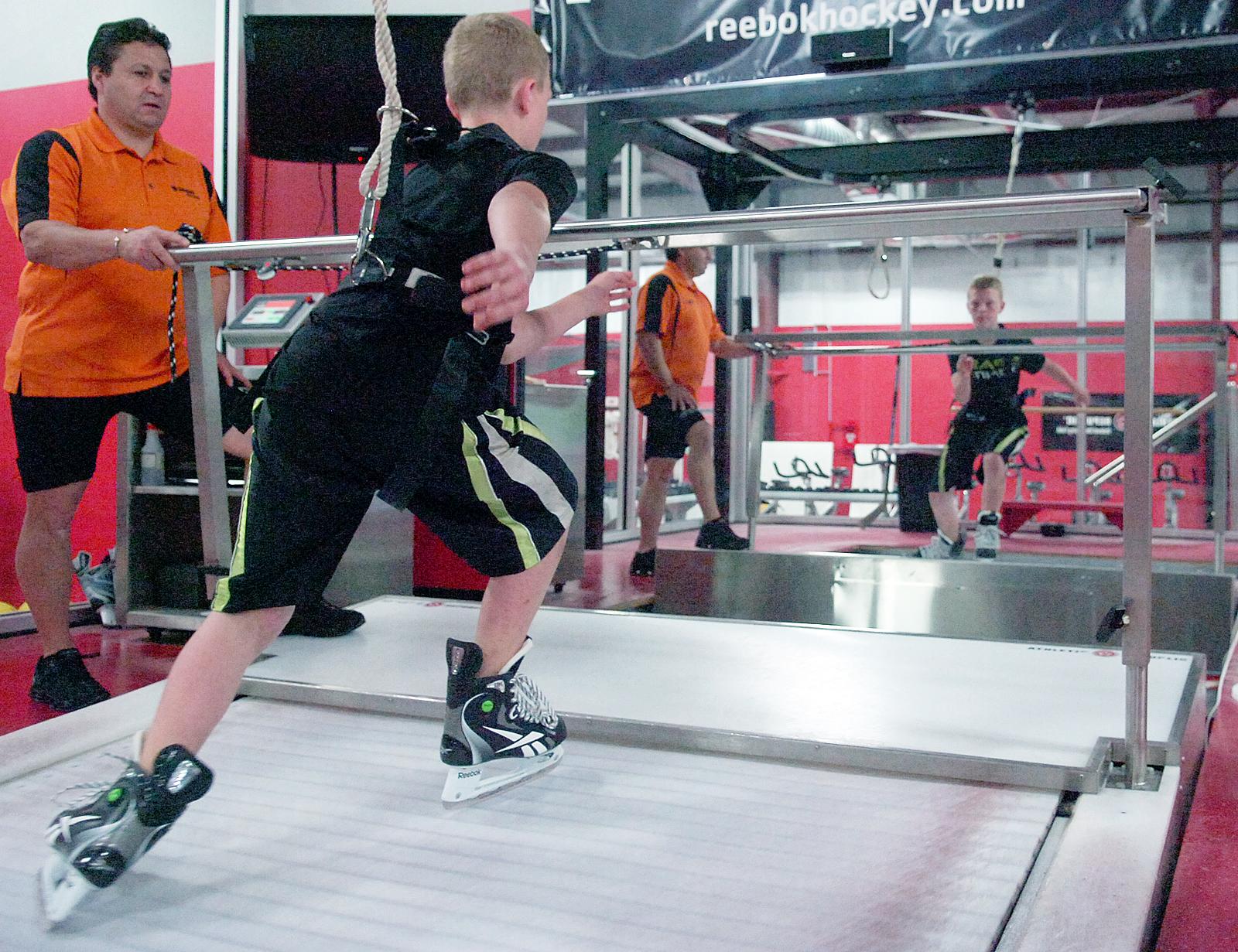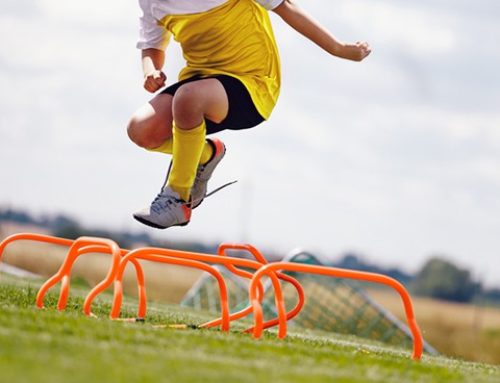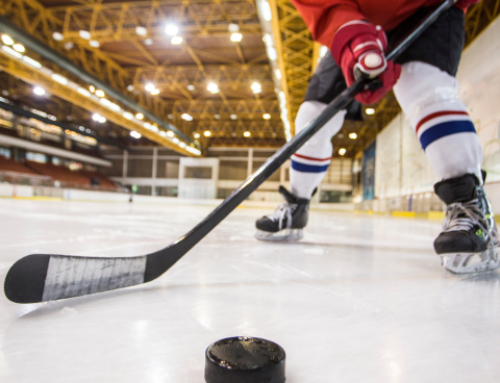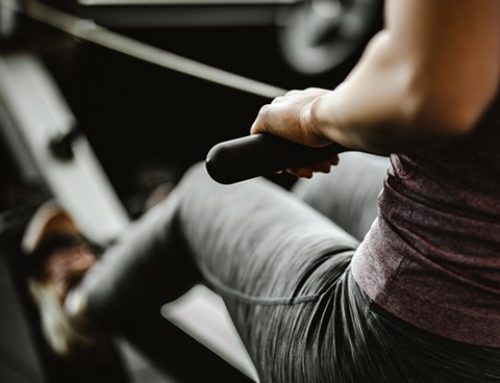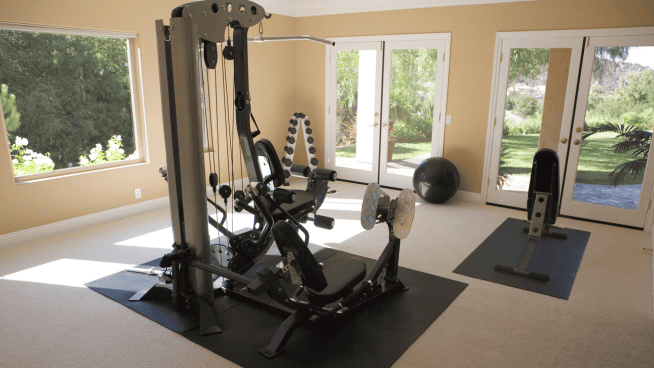Treadmills are great for developing stride technique, speed, power and endurance. The combination of adjustable speed and incline allow for programs to be implemented that target many athletes’ needs. For example, a football player trains by running for short intervals at a high speed and elevation to develop explosive speed, while a distance runner runs for longer, high-speed intervals with no elevation.
This fantastic training tool can be used to benefit a broad range of athletes, but hockey players generally miss out, because of the differences between skating and running. Essentially, hockey players can develop their skating ability only at the rink, right? Wrong—a treadmill exists that you can actually skate on.
Since 1993, Athletic Republic has been at the forefront in pioneering treadmill skating technology with their proprietary hockey treadmill. The belt is made of a lubricated, ice-like surface that allows players to use their hockey skates. It can tilt at a 0- to 32-degree angle and travel at speeds up to 16 mph, opening the door for hockey players to take advantage of proven treadmill training techniques used by athletes in other sports.
Athletic Republic, which has studied the effectiveness of the hockey treadmill, has found that it produces positive benefits. Their website states, “incline treadmill skating recruits key muscles at a level two or three times higher than rink skating at the same stride frequency, which helps you produce more power during each stride, during push-off and recovery.”
Although obviously not found at an ordinary gym, hockey treadmills are gaining in popularity because of their clear benefits. Prominent Division I programs, such as the University of Minnesota Golden Gophers, have implemented the system into their training routine to give their athletes a competitive edge. Who wouldn’t want a system that gives two to three times more muscle activation than the standard form of training?
If you’re unable to try the hockey treadmill any time soon, don’t despair—just try other off-ice training exercises. Check out how Thomas Vanek, Buffalo Sabres LW, develops his powerful stride with the Russian Plyo and leg strength for hockey with the Power Step-Up.
Source: Athletic Republic
RECOMMENDED FOR YOU
Treadmills are great for developing stride technique, speed, power and endurance. The combination of adjustable speed and incline allow for programs to be implemented that target many athletes’ needs. For example, a football player trains by running for short intervals at a high speed and elevation to develop explosive speed, while a distance runner runs for longer, high-speed intervals with no elevation.
This fantastic training tool can be used to benefit a broad range of athletes, but hockey players generally miss out, because of the differences between skating and running. Essentially, hockey players can develop their skating ability only at the rink, right? Wrong—a treadmill exists that you can actually skate on.
Since 1993, Athletic Republic has been at the forefront in pioneering treadmill skating technology with their proprietary hockey treadmill. The belt is made of a lubricated, ice-like surface that allows players to use their hockey skates. It can tilt at a 0- to 32-degree angle and travel at speeds up to 16 mph, opening the door for hockey players to take advantage of proven treadmill training techniques used by athletes in other sports.
Athletic Republic, which has studied the effectiveness of the hockey treadmill, has found that it produces positive benefits. Their website states, “incline treadmill skating recruits key muscles at a level two or three times higher than rink skating at the same stride frequency, which helps you produce more power during each stride, during push-off and recovery.”
Although obviously not found at an ordinary gym, hockey treadmills are gaining in popularity because of their clear benefits. Prominent Division I programs, such as the University of Minnesota Golden Gophers, have implemented the system into their training routine to give their athletes a competitive edge. Who wouldn’t want a system that gives two to three times more muscle activation than the standard form of training?
If you’re unable to try the hockey treadmill any time soon, don’t despair—just try other off-ice training exercises. Check out how Thomas Vanek, Buffalo Sabres LW, develops his powerful stride with the Russian Plyo and leg strength for hockey with the Power Step-Up.
Source: Athletic Republic

